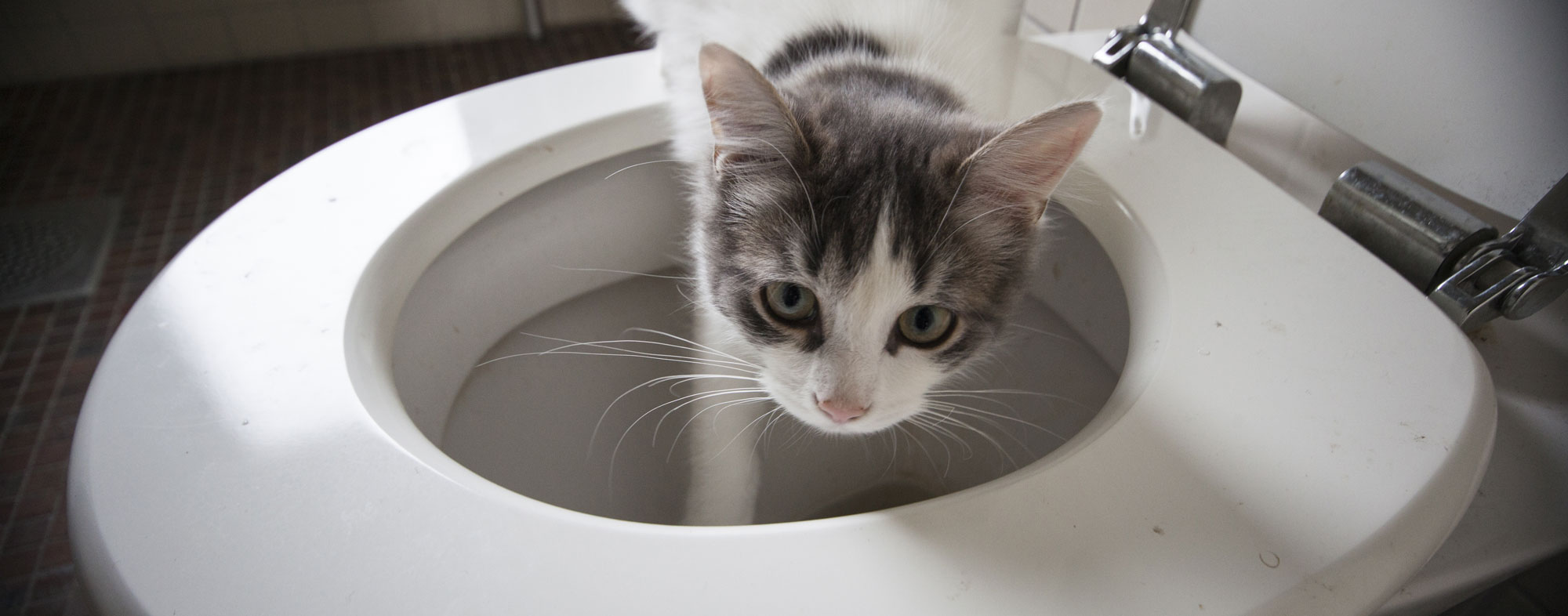Potential Risks of Flushing Cat Poop Down Your Toilet - Advice for Safer Disposal
Potential Risks of Flushing Cat Poop Down Your Toilet - Advice for Safer Disposal
Blog Article
We've noticed this article about Can You Flush Cat Poop Down The Toilet? directly below on the web and believe it made sense to write about it with you in this article.

Intro
As cat proprietors, it's necessary to bear in mind how we dispose of our feline buddies' waste. While it might appear convenient to flush pet cat poop down the bathroom, this technique can have damaging consequences for both the setting and human health.
Environmental Impact
Purging pet cat poop introduces dangerous pathogens and parasites into the water, posing a significant danger to water ecological communities. These contaminants can adversely impact marine life and compromise water quality.
Health Risks
In addition to ecological problems, purging pet cat waste can likewise present health and wellness dangers to humans. Cat feces might consist of Toxoplasma gondii, a bloodsucker that can trigger toxoplasmosis-- a potentially extreme health problem, especially for pregnant females and individuals with damaged body immune systems.
Alternatives to Flushing
Luckily, there are more secure and more accountable methods to throw away pet cat poop. Consider the complying with options:
1. Scoop and Dispose in Trash
The most typical technique of dealing with cat poop is to scoop it into an eco-friendly bag and throw it in the garbage. Be sure to use a committed trash scoop and take care of the waste immediately.
2. Usage Biodegradable Litter
Go with eco-friendly feline trash made from materials such as corn or wheat. These clutters are environmentally friendly and can be securely taken care of in the garbage.
3. Bury in the Yard
If you have a backyard, consider burying cat waste in a marked area far from veggie yards and water resources. Make certain to dig deep enough to stop contamination of groundwater.
4. Mount a Pet Waste Disposal System
Purchase a family pet waste disposal system specifically made for feline waste. These systems use enzymes to break down the waste, lowering smell and environmental influence.
Conclusion
Liable animal possession prolongs past offering food and sanctuary-- it also includes proper waste administration. By avoiding flushing feline poop down the commode and choosing alternate disposal approaches, we can reduce our ecological impact and protect human health and wellness.
Why You Should Never Flush Cat Poop Down the Toilet
A rose by any other name might smell as sweet, but not all poop is created equal. Toilets, and our sewage systems, are designed for human excrement, not animal waste. It might seem like it couldn’t hurt to toss cat feces into the loo, but it’s not a good idea to flush cat poop in the toilet.
First and foremost, assuming your cat uses a litter box, any waste is going to have litter on it. And even the smallest amount of litter can wreak havoc on plumbing.
Over time, small amounts build up, filling up your septic system. Most litter sold today is clumping; it is made from a type of clay that hardens when it gets wet. Ever tried to scrape old clumps from the bottom of a litter box? You know just how cement-hard it can get!
Now imagine just a small clump of that stuck in your pipes. A simple de-clogger like Drano isn’t going to cut it. And that means it’s going to cost you big time to fix it.
Parasitic Contamination
Believe it or not, your healthy kitty may be harboring a nasty parasite. Only cats excrete Toxoplasma in their feces. Yet it rarely causes serious health issues in the cats that are infected. Most people will be fine too if infected. Only pregnant women and people with compromised immune systems are at risk. (If you’ve ever heard how women who are expecting are excused from litter cleaning duty, Toxoplasma is why.)
But other animals may have a problem if infected with the parasite. And human water treatment systems aren’t designed to handle it. As a result, the systems don’t remove the parasite before discharging wastewater into local waterways. Fish, shellfish, and other marine life — otters in particular — are susceptible to toxoplasma. If exposed, most will end up with brain damage and many will die.
Depending on the species of fish, they may end up on someone’s fish hook and, ultimately on someone’s dinner plate. If that someone has a chronic illness, they’re at risk.
Skip the Toilet Training
We know there are folks out there who like to toilet train their cats. And we give them props, it takes a lot of work. But thanks to the toxoplasma, it’s not a good idea.

I was guided to that report about How to Dispose of Cat Poop and Litter Without Plastic Bags from a good friend on our other domain. For those who appreciated our page if you please make sure you remember to share it. Many thanks for your time. Visit us again soon.
Free Estimate Report this page